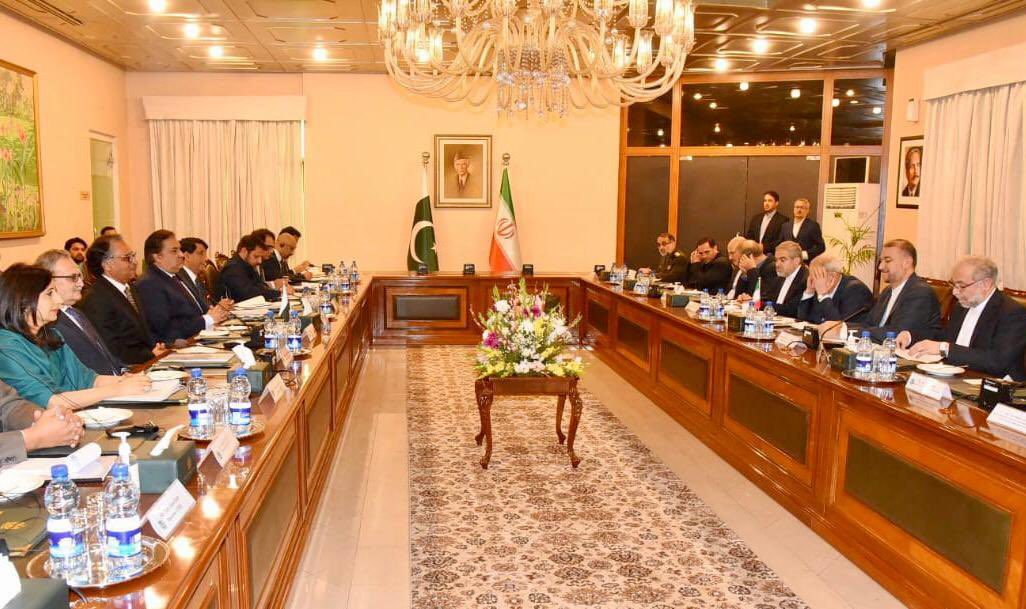Islamabad, 29 January 2024 (TDI): The Foreign Minister of Iran, Hossein Amir Abdollahian, arrived in Islamabad at the invitation of Pakistan’s Foreign Minister, Jalil Abbas Jilani. Both Ministers showed concern over cross-border terrorism and discussed the approaches to find solutions for regional peace.
https://twitter.com/ForeignOfficePk/status/1751871811644764619During his official visit, Foreign Minister Abdollahian engaged in in-depth discussions with his Pakistani counterpart, Foreign Minister Jilani, and also called on Prime Minister Anwaar ul Haq Kakar.
Meanwhile, the meeting, attended by senior officials from both sides, aimed to strengthen bilateral ties and address regional challenges.
Concerns over Cross-border Terrorism
In a joint press conference with Foreign Minister Jilani, Iranian Foreign Minister Abdollahian expressed concerns over cross-border terrorism.
He asserted that militants in the border regions of both countries were “led and supported by third countries.”
Furthermore, Abdollahian highlighted the need for joint efforts to combat terrorism and secure the common border of Iran and Pakistan.
Moreover, Abdollahian emphasized the historical relations between Iran and Pakistan, describing them as representing a single nation in two distinct geographical positions.
Additionally, he disclosed an invitation for Iranian President Ebrahim Raisi to visit Pakistan, underscoring mutual respect for sovereignty and territorial integrity.
Both ministers affirmed their commitment to not provide any opportunity for terrorists to threaten common security.
Joint Actions and Collaborative Approaches
The two sides agreed to prompt actions regarding border security, combating terrorism, and enhancing trade and economic cooperation.
Foreign Minister Jilani announced the establishment of a high-level constructive mechanism at the level of foreign ministers to oversee progress in various areas of cooperation, meeting alternately in Iran and Pakistan.
Also Read: Pakistan and Iran to strengthen bilateral cooperation
However, acknowledging the common challenge of terrorism, both ministers stressed the importance of collective and collaborative approaches.
To strengthen security and intelligence cooperation, liaison officers will be stationed in Turbat and Zahedan. Moreover, the participants reiterated their commitment to robust institutional mechanisms for security cooperation.
In earlier discussions, both ministers agreed to strengthen bilateral relations further.
They underscored the significance of robust dialogue and cooperation as the pathway for a positive, forward-oriented, and upward trajectory in bilateral relations. Moreover both emphasized the collective approaches to confront and combat terrorism.
Meanwhile, to uplift the socio-economic status of people in border regions, the ministers decided to establish a Joint Coordination Mechanism at the level of foreign ministers.
This mechanism will oversee and steer progress on a common agenda for prosperity and development.
The writer is a dedicated graduate student pursuing an MPhil in DSS from NDU Islamabad.



